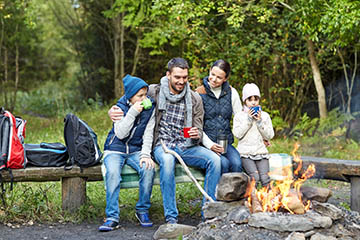 As a social worker, I have worked in fostering for the past 8 years and have recruited many foster carers. You may think there is a specific person who can foster, but I can honestly say foster carers come from all walks of life. And rightly so. Children and young people are different, they all need different things in life and different people to care for them. Therefore, foster carers need to be different.
As a social worker, I have worked in fostering for the past 8 years and have recruited many foster carers. You may think there is a specific person who can foster, but I can honestly say foster carers come from all walks of life. And rightly so. Children and young people are different, they all need different things in life and different people to care for them. Therefore, foster carers need to be different.
Unfortunately, not everyone has a great start in life. Some children and young people suffer abuse and trauma which means they can no longer live at home with their birth parents, and sometimes their siblings.
Out of everything I would say life experience is the key to being a good foster carer. Being able to understand the world around you and how it impacts on people, their lives and their behaviour is crucial.
Foster carers are selfless, kind hearted individuals. They are also strong and resilient. They must have a determination to care, but also a willingness to compromise or even to let go when the time is right.
Contrary to belief you are never too old to foster. Being in your late fifties or even in your sixties does not preclude you from becoming a foster carer. The oldest foster carer I have worked with was in their early eighties and his impact on troubled young people was remarkable. This calm, grandfather figure invoked respect within young people and offered unique encouragement to help improve their life chances.
Every looked after child and young person needs stability and a listening ear. Single people can provide this and more. LGBT people and couples can provide this and more. People from minority backgrounds can provide this and more.
Children and young people sometimes struggle with social interactions; their sexuality and their identity. They need foster carers who offer a high level of empathy; who can relate to their individuality. We all need acceptance – why would looked after children and young people be any different?
I have worked with some extraordinary foster carers who have made a difference and have changed lives. I have also worked with foster carers who have sometimes struggled. I hold both sets of foster carers in equally high regard.
Deciding to be a foster carer is a life changing event. It demonstrates a desire to help some of the most vulnerable people in society and a recognition that there may be challenges ahead. The worry of failure sometimes stops us from making certain decisions in life. When making big decisions, we balance the chances of success with the risk of failure. But what should take priority in deciding to foster is the significance of the successes – they are ultimately life changing to a child or young person. Is it not therefore worth dampening down those fears and giving in to the fostering aspirations you feel?
Do something extraordinary – foster with Fostering to Inspire
Currently rated 0.0 by 0 people